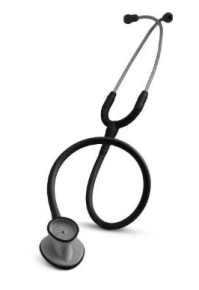Every year the U.S. Department of Health and Human Services Office of the Inspector General (OIG) publishes a work plan that provides industry stakeholders with insight as to the OIG’s new and ongoing auditing and investigative activities in the upcoming year.
|
|
||||
|
Round 2 competitive bidding program (Program) went into effect as of July 1, 2013 in 91 Metropolitan Statistical Areas (MSAs). At the same time, Medicare began the national mail-order program for diabetic supplies. Below we discuss some of the features of the Program and what this may mean for DMEPOS suppliers and those healthcare providers who refer patients for durable medical equipment and supplies. New York State Medicaid Program posted new applications on April 1, 2013 for non-billing providers that order, prescribe, and/or refer beneficiaries with fee-for-service Medicaid coverage. New Jersey Medicaid required all such providers to be enrolled an “non-billing” providers by Jan. 1, 2013. Section 6002 of the Affordable Care Act (a.k.a. “Sunshine Act”) imposes new reporting requirements on financial relationships between medical and pharmaceutical makers and physicians and teaching hospitals. While lauded for its attempts to bring greater transparency to industry financial relationships some wonder whether the implementation methods planned by the Centers for Medicare & Medicaid Services (CMS) would expand the Act beyond the boundaries envisioned by Congress. This is our second article in a series discussing the New York State Medicaid’s compliance program requirements. In our first article we focused on which providers are required by law to have a compliance program. In this article, we turn our attention to the annual certification requirement. The necessity of having a compliance program is no longer a requirement providers can ignore. In the next series of articles, we briefly address the compliance program requirements for New York State Medicaid providers, starting with the overview of the regulations below. One of the changes brought about by the Affordable Care Act (ACA) is the enhanced enrollment and revalidation screenings for providers and suppliers not only under Medicare but also Medicaid and CHIP healthcare programs. On July 26, 2012, Health and Human Services (HHS) Secretary Kathleen Sebelius and Attorney General Eric Holder announced an unprecedented partnership between private and public healthcare insurance organizations focused on fighting healthcare fraud. The federal self-referral law, often referred to as the Stark Law, prohibits a physician from referring patients to receive “designated health services” (DHS) payable by Medicare or Medicaid to an entity with which the physician or an immediate family member has a financial relationship. See 42 U.S.C. §1395nn. The Medicare and Medicaid programs provide health insurance for tens of millions of people. According to Centers for Medicare and Medicaid Services (CMS), the Medicare program alone has 47.5 million beneficiaries and, in 2010, had total expenditures of $523 billion. It is not surprising, therefore, that such large programs invite scrutiny from government auditors and In the fall of last year, the Office of Inspector General (OIG) for the Department of Health & Human Services (HHS) released its Fiscal Year 2012 workplan which identifies new and already-in progress programs of focus for the OIG. If a New York doctor accepts Medicaid and practices in New York that may be enough be included an audit program conducted through a project known as Payment Error Rate Measurement Program (PERM). You may have heard that Medicaid is a payer of last resort, a requirement that Medicaid providers bill other payers first when Medicaid enrollees have other forms of insurance, such as Medicare. But providers should note that Medicare is not always the payer of first resort. The Centers for Medicare & Medicaid Services (CMS) and the New York State Office of the Mediciad Inspector General (OMIG) have teamed up to analyze and measure whether improper payments in the Medicaid and State Child Health Insurance programs have been made to healthcare providers. Under the Payment Error Rate Measurement (PERM) program, which was Nowadays State and Federal governments are focused on making healthcare fraud, waste and abuse their top priorities. In furtherance of this goal, the Centers for Medicare & Medicaid Services (“CMS”) announced recently that starting July 1, it will begin using innovative predictive modeling technology to fight Medicare fraud. In addition to any state laws that may impact a doctor’s practice, the main civil Federal laws and their implementing regulations that concern physicians are the False Claims Act, the Anti-Kickback Statute, the Physician Self Referral Act (often called the Stark Law), the Exclusion Statute, and the Civil Monetary Penalties Law. An additional law that |
||||

